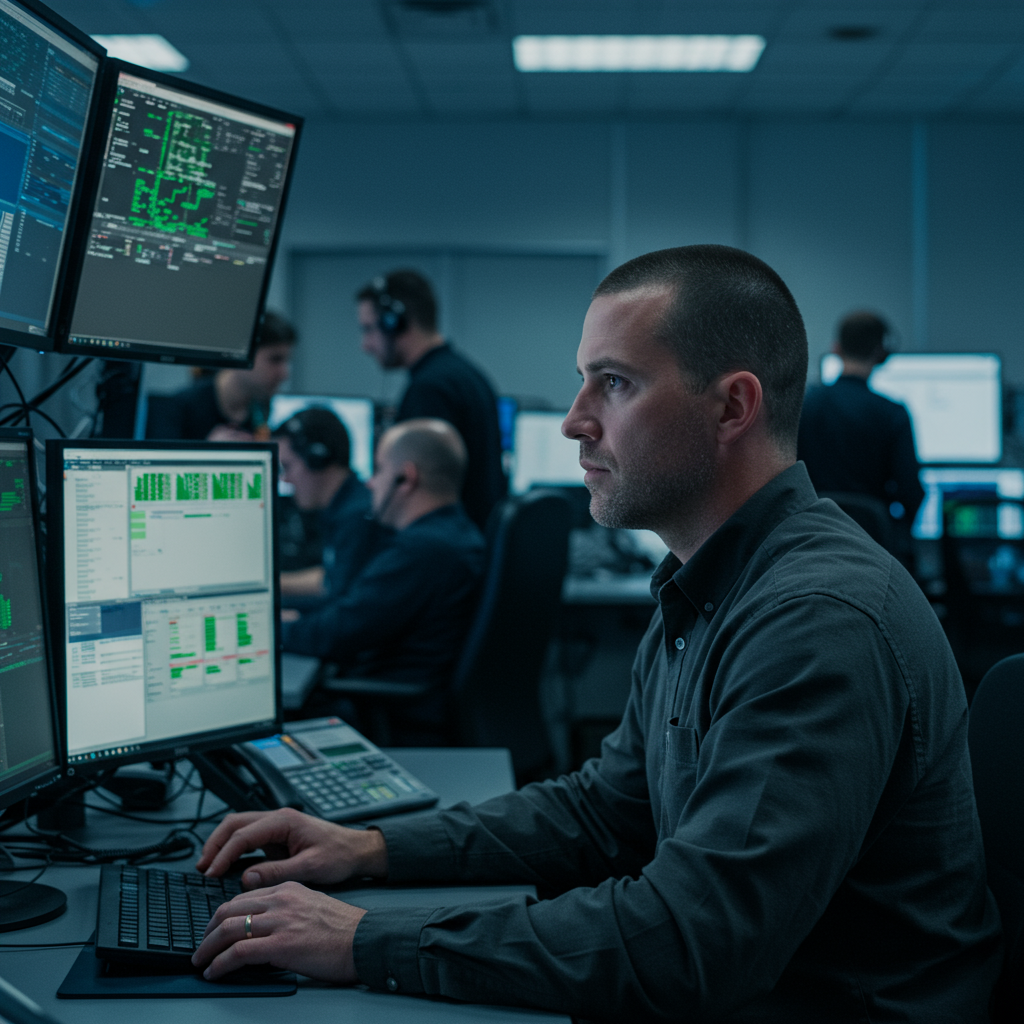Transitioning from military service to civilian life can be a significant challenge, yet for a growing number of veterans, cybersecurity is proving to be a natural and rewarding career path. While leading a patrol in a conflict zone might seem vastly different from monitoring a security operations center (SOC), the core instincts, skills, and mindset developed in uniform are proving exceptionally valuable in defending digital frontiers.
The cybersecurity industry is actively seeking individuals with qualities like vigilance, discipline, and the ability to perform under pressure – traits inherent to military training. As former infantryman James Murphy notes, the heightened awareness needed to spot something out of place in a potentially hostile environment, like an unexpected trashcan in an empty village, is akin to the vigilance required to detect anomalies in a network that could signal a cyber threat. This acute sense of awareness is highly coveted by cybersecurity teams.
Why Veterans Are a Perfect Fit for Cyber Defense
Beyond vigilance, military service cultivates a unique blend of technical aptitude and crucial soft skills directly applicable to cybersecurity roles:
Problem-Solving Under Pressure: Military personnel are trained to adapt and find solutions when plans go awry, communications fail, or supply lines break down. As former Royal Artillery officer and interim CISO Mo Ahddoud puts it, the military mindset is constantly focused on “How do you fix it?” This practical approach to navigating unexpected crises is essential in incident response.
Risk Assessment and Layered Defense: Military strategy inherently involves assessing risks, building “defense in depth,” and creating multiple layers of security. This thinking aligns “very neatly” with cybersecurity principles focused on anticipating threats, monitoring risk, and implementing layered defenses to protect critical assets.
Agility and Adaptability: Military personnel understand that “no plan survives first contact.” They are trained to be agile and adapt strategies in real-time when faced with an adversary. This flexibility is critical in cybersecurity, where attackers constantly evolve their tactics.
Teamwork and Composure: Cybersecurity roles, particularly in “blue teams” focused on security operations, incident response, and forensics, demand strong collaboration and the ability to remain calm during high-stress situations. Recruitment experts highlight veterans as excellent team players and “grafters” (hard workers) who can keep their cool when dealing with digital “disasters.”
Technical Foundations: Many military roles involve complex technical systems, from communications and logistics to direct cyber operations. Veterans often bring foundational technical understanding or the aptitude for rapid technical learning. Pete Lujan, a veteran and Director at Fortinet, notes his own path from personnel admin to IT and eventually a “Cybersecurity Marine,” highlighting how military roles can evolve into technical specializations. His experience on a “Red Team” even provided invaluable insight into attacker mindsets.
Addressing the Global Cyber Skills Gap
The timing of this natural transition is critical. The cybersecurity industry faces a significant global talent shortage, with the World Economic Forum estimating a deficit of four million professionals. In the United States alone, there are over half a million open cybersecurity positions. This demand is driven by the increasing frequency and sophistication of cyberattacks targeting everything from critical infrastructure and national defense systems to major retailers and businesses.
Veterans represent a vital, often untapped, talent pool to help close this gap. Recognizing this, numerous initiatives are actively supporting veterans’ transition into cyber roles:
Programs like the UK’s TechVets are successfully guiding significant numbers of former service members into cybersecurity employment.
In the U.S., the Biden-Harris administration emphasizes the role of veterans and military spouses in building the cyber workforce, highlighting their mission-driven nature and leadership skills.
Federal programs like the VA Cybersecurity Apprenticeship Program and initiatives from organizations like CyberSkills2Work, ISC2 (offering free certifications), Fortinet (through their Veterans program and Training Institute), and others are providing training, resources, and direct pathways into the industry.
- Companies like Deloitte and Walmart are actively recruiting veterans, recognizing their value. Dell Fletcher, a veteran cybersecurity engineer at Walmart, points to supportive leadership, mentorship, and Associate Resource Groups (ARGs) as crucial for helping veterans find belonging and thrive in corporate environments.
- https://www.bbc.com/news/articles/ce3vgjzwl04o
- https://www.fortinet.com/blog/business-and-technology/fortinet-supports-military-veterans-in-cybersecurity
- https://www.yahoo.com/news/why-many-military-veterans-move-230444022.html
- https://bidenwhitehouse.archives.gov/oncd/briefing-room/2024/03/20/remarks-ftcc-north-carolina/
- https://www.walmartworld.com/content/walmart-world/en_us/articles/2024/07/where-military-skills-meet-civilian-success.html
More Than Just a Job: Purpose and Community
For veterans, a career in cybersecurity offers more than just employment; it provides a new mission and a sense of purpose that can feel familiar. Crystal Morin, a former US Air Force member who worked in counter-terrorism and now serves as a cybersecurity strategist, sees a direct parallel between a Security Operations Centre (SOC) and her previous military security roles. Both involve adrenaline, problem-solving, “keeping the peace,” and “fighting the bad guys.”
Crucially, the cybersecurity community often provides the strong sense of camaraderie that veterans value from their military service. Morin notes that the industry feels like a “really tight knit community” with shared experiences, busy periods, and downtime that mirrors military life. This belonging, coupled with opportunities for continued learning and making a meaningful impact, helps veterans find fulfillment in their post-service careers.
Conclusion
The skills, discipline, and unique perspective forged in military service are not just transferable to civilian life; they are profoundly valuable assets in the complex and critical field of cybersecurity. As the demand for cyber professionals continues to grow, military veterans are increasingly recognized as ideal candidates, bringing the vigilance, problem-solving prowess, and team-oriented mindset needed to defend our digital world. For veterans seeking a new challenge and a chance to continue serving, cybersecurity offers a promising and impactful path forward.




